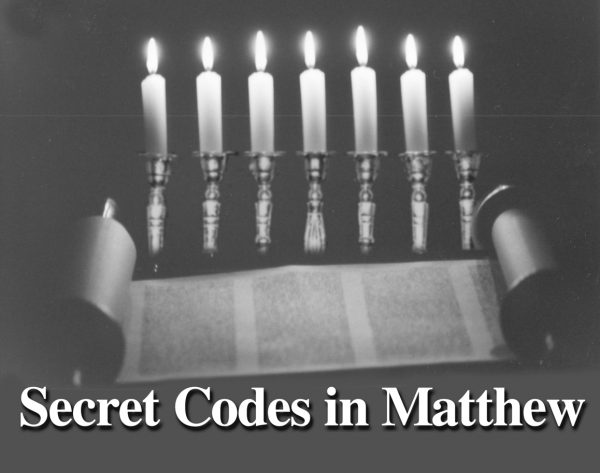The Secret Codes in Matthew: Examining Israel’s Messiah, Part 8: Matthew 11-12, by Kevin M. Williams

Apart from bringing some Hebraic elements to light in the life of Yeshua1 and His ministry, this series has been unveiling the theme “Yeshua is the long awaited Messiah of Israel.” We have repeatedly demonstrated from the text how the teaching and deeds of Yeshua made their own messianic proclamations, without requiring direct confirmation from the mouth the Messiah.
Why? Because it would seem that Yeshua is allowing people to make up their own minds and reach their own convictions. It is one thing for a person to stand up and say, “I am the Savior,” and attempt to convince an otherwise skeptical and jaded audience. It is far more effective to allow entire communities to reach their own conclusions. Like ripples in a pond, the good report is spread ahead of you, creating a wake of faith, hope, and an undercurrent of anticipation as people begin asking “could this be the Messiah?”
Also, to proclaim the Messiahship of the Bible was to be equal to God, if not God incarnate. To openly proclaim yourself to be God in an adversarial empire (Roman), under a corrupt governorship (Herod Antipas), with a defiled religious order (the High Priest—a non-Levite) meant a guaranteed and immediate execution. Yeshua was not yet ready to be executed.
We continue in this eighth portion of our series to find the covert message, the secret codes of Yeshua as the Messiah as found in the Gospel According to Matthew.
“But what did you go out to see? A man dressed in soft clothing? Behold, those who wear soft clothing are in kings’ palaces. But why did you go out? To see a prophet? Yes, I say to you, and one who is more than a prophet. This is the one about whom it is written, ‘Behold, I send My messenger before Your face, who will prepare Your way before You.’ Truly, I say to you, among those born of women there has not arisen anyone greater than John the Baptist; yet he who is least in the kingdom of heaven is greater than he. And from the days of John the Baptist until now the kingdom of heaven suffers violence, and violent men take it by force. For all the prophets and the Law prophesied until John. And if you care to accept it, he himself is Elijah, who was to come. He who has ears to hear, let him hear (Matthew 11:8-15).
Versus 1-7 also discuss John, but were a part of our last study in this series. We pick up with John again in this 8th verse. Yeshua has been addressing the crowds (v. 7), but what is He telling them? He is telling them in a very unassuming fashion that He is the Messiah.
Category: Biblical Studies, Pneuma Review, Winter 2003


